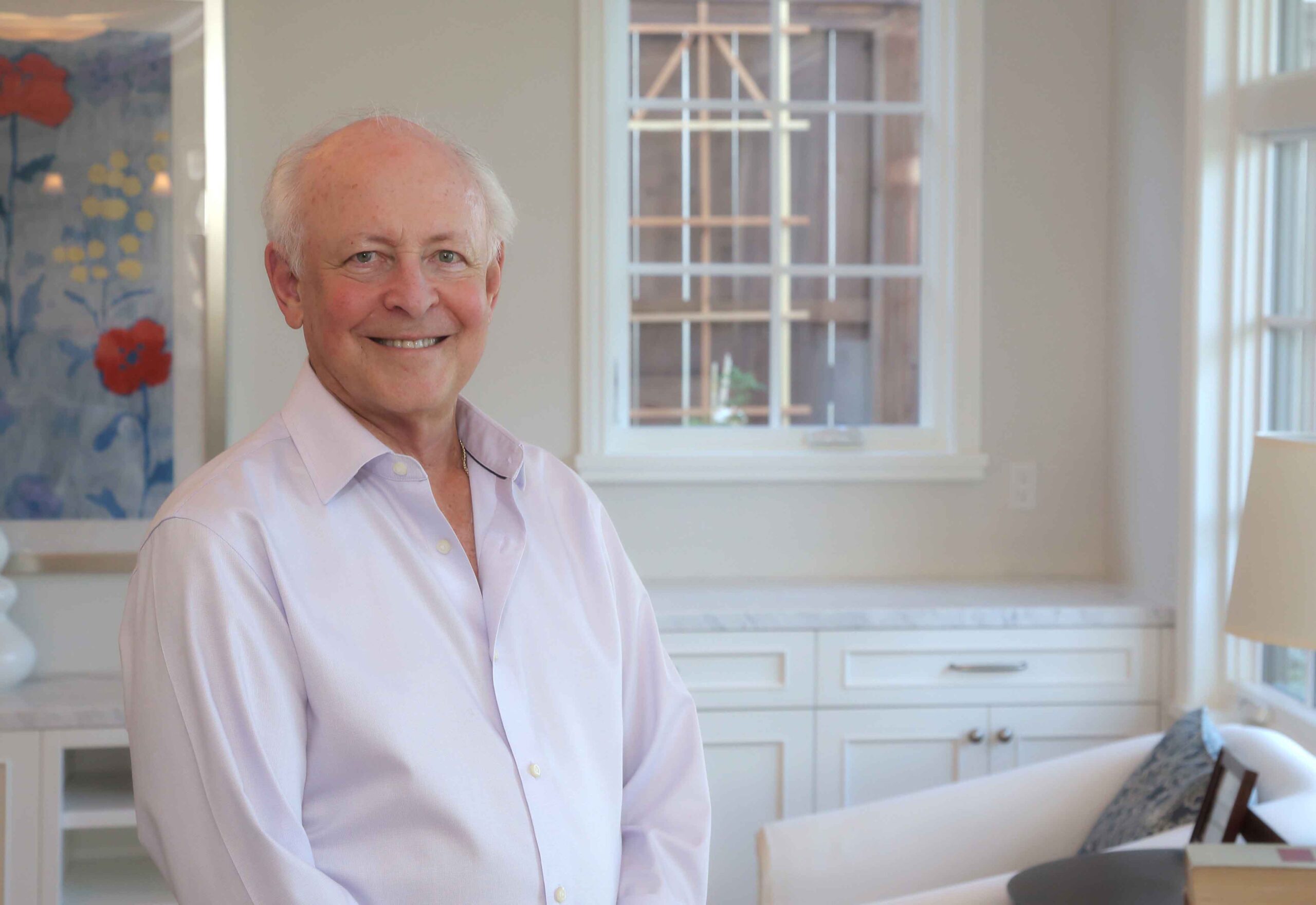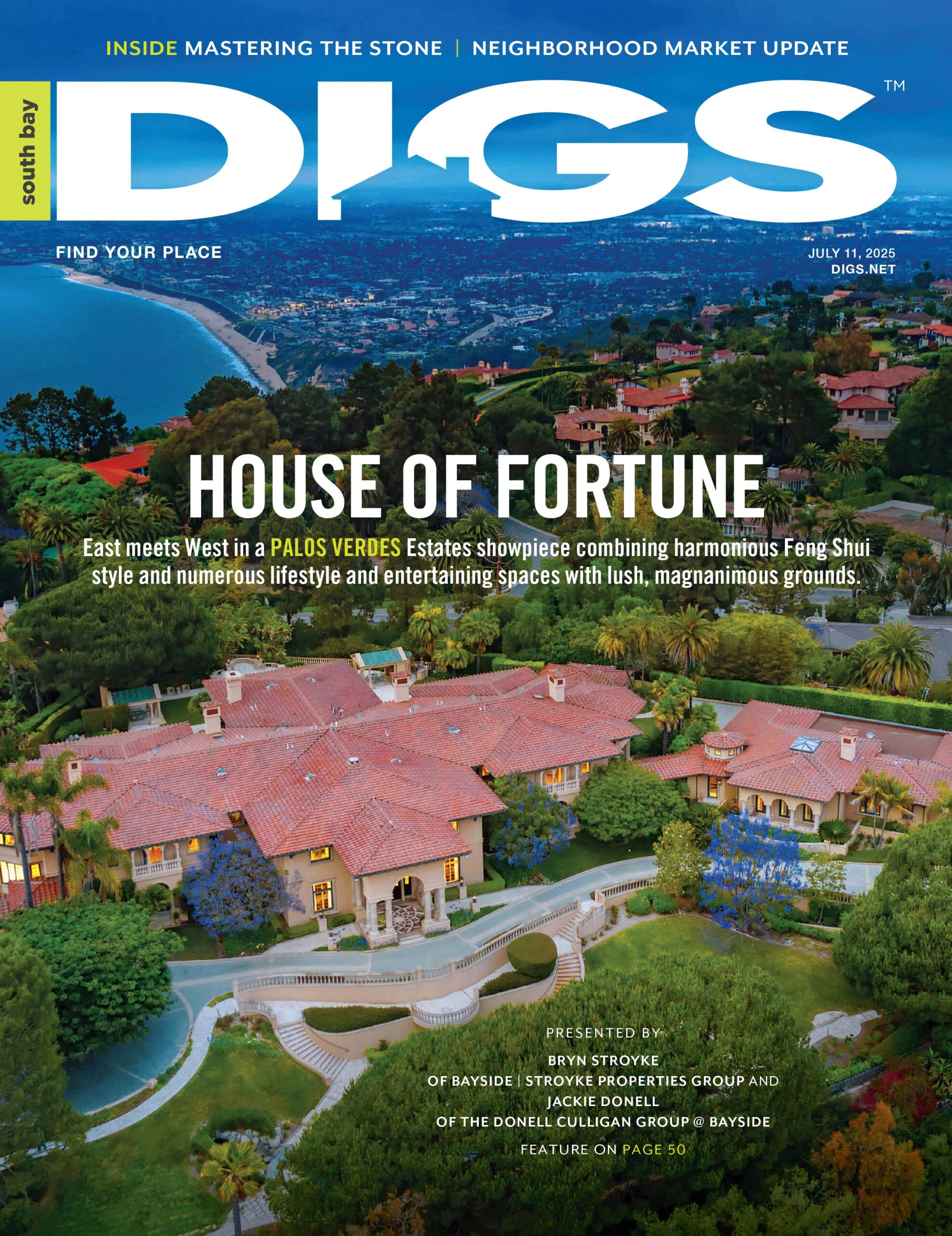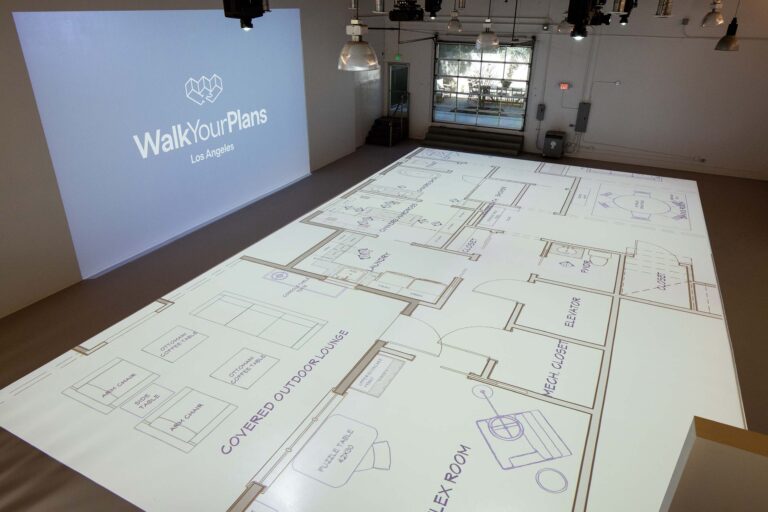Table of Contents

In This Episode
Learn how Michael Edlen and the Edlen Team of Coldwell Banker reach new heights year after year while averaging 4 real estate transactions per month since 1990 and have a lifetime sales volume of over $2 Billion as one of the experts of the Pacific Palisades market.
Michael Edlen is one of the real estate industry’s true independent thinkers and strategists – learn how he’s created success in every real estate market and how his team continues to deliver results for their clients and the local community. This episode is not to be missed – leave us your reviews!
Top Quotes
“I’ve lived in the Pacific Palisades since the 1970s. We bought our home through a lot of hard efforts. And we haven’t moved since.”
Tweet
“The energy that one generates is extremely important to be mindful of in terms of of being successful because people who have a low level of expectation of low level of energy. Victim mentality and again could talk for a long time about it.”
Tweet
“It jumps up to bite them in the most weird ways. The thing they fear most comes upon them the thing they’re trying to hide comes to light. Yeah the leak that they mentioned. Oh, it had happened deck a long time ago long time ago fixed just in passing when it rained not too long ago and they called us and said, um, ‘we just noticed’ and this is after we’d explain to them in great painstaking detail the importance of being totally upfront with disclosures because you’re exposed if you don’t so they decided to be totally upfront.”
Tweet
Episode Resources
Follow Michael Edlen and the Edlen Team
Follow along with Michael Edlen and the Edlen Team at: EdlenTeam.com
Full Episode Transcript
Michael Edlen: I had a natural ability to do things well with analysis and business activity, and made a lot of money, but had no fun. I retired from that. After several years we sold the business. I began to miss interaction with people and real estate and travel agent or the two that we finally narrowed the world down to it was a flip of a coin…
Warren Dow: Welcome to DIGS Influencer podcast: The Titans of Real Estate.
The show that provides direct access to the real estate industry’s top movers and shakers where they share invaluable Insight on how to best navigate and succeed in any market? I’m your host Warren Dow, Founder and CEO of M3 Media and Publisher of DIGS Magazine.
Thank you to our sponsor Bo Concept.
Warren Dow: Today’s guest has been representing buyers and sellers on the Westside. For more than 30 years has completed over thirteen hundred and fifty successful transactions and has sold over $1.5 billion in homes, please welcome to the show, Michael Edlen of Coldwell Banker International, and the Edlen Team.
Welcome Michael.
Michael Edlen: Thank you Warren. It’s a pleasure to be here.
Warren Dow: So, I want to just for our audience sake run down some quick statistics just to put some context into your stature in this industry. You know, you’re obviously this is the influencer podcast and you very much fit that description as one of the top agents in the country.
You’re ranked in the top 10 of Coldwell Banker greater, LA area agents also in the top 20 of more than 90,000 Coldwell Banker agents internationally. You’ve average 4 transactions per month since 1994, which is amazing. You sell 95% of your listings on average and your average sale price to list price ratio is 97.5%. That’s quite amazing, quite an accomplishment.
Congratulations.
Michael Edlen: Thank you!
Warren Dow: So, I want to start from the beginning. Tell us your story.
Michael Edlen: Well, I grew up in the San Gabriel Valley in a little town called Alhambra and I went through high school there then migrated over to UCLA. I was on campus for 6 to 7 years, received my bachelor’s degree in Psychology and Master’s degree in Business Administration there and that was my early upbringing.
Warren Dow: Awesome. So what did you do as a young adult for fun? Like what interested you, we’re that you are, you know activities or how did you spend your time?
Michael Edlen: As a young kid? We, meaning me and some neighbors. We always did as much work around the neighborhood as we could to raise money so that we could augment our allowances. So, one of the things we had fun with I enjoyed was mowing lawns.
Warren Dow: Yeah, I did too. I had the same at my little lawn mowing business it
Michael Edlen: Which it could be very lucrative because the overhead with I should say use our families, right? It didn’t cost anything and then when I got a little bit older, I got a job as a delivery boy for the newspaper.
Warren Dow: Whoa. Yeah, this is this is eerily coincidental or I have same I was a delivery boy for our local newspaper.
Michael Edlen: My neighborhood mine was a Los Angeles Mirror which no longer exists, but it was a morning paper. And so, I would get up at about 4:30 or 5:00 get on my bike and go five blocks over to where they had this little office and we folded papers put them on the bike and delivered I think about a hundred of them.
And then I remember that back in time for get cleaned up and eat breakfast before going to school so that that was a fond memory of learning to be self-sufficient other activities. That interested me then was I was active in track and field I was a cross country Runner and I became interested through my father in the game of chess.
And joined up with four or five people that were several years older and enjoyed competitive chess for several years.
Warren Dow: That’s great. So do you live in the Palisades Michael?
Michael Edlen: I do, I’ve lived in the Pacific Palisades since the 1970s. We bought our home through a lot of hard efforts. And we haven’t moved since before that we lived in West Los Angeles.
Warren Dow: Nice, and by the way, for those listening, we are broadcasting from the Pacific Palisades and we’re right off…what street is it that we are listening to these cars by Sunset Boulevard? So those that are listening or hearing cars passing by on Sunset Boulevard. It’s a rainy Wednesday, to put some context on what we’re doing today.
So, alright, let’s jump into how you got into real estate. Tell us about how you got started.
Michael Edlen: I’ll be for Real Estate worn my background because I was in Business Administration and I found I had a natural ability to do things well with analysis and business activity. My family had a drapery manufacturing firm.
My wife’s family and I became part of that because I had the wider perspective that a business school graduate might have we took a small family business and made it into the dominant force on the west coast in making draperies and curtains my mobile homes and travel trailers.
Warren Dow: Impressive, that’s awesome.
Michael Edlen: It was it was a lot of work, but it was very gratifying. Yeah made a lot of money but had no fun whatsoever a lot of work. Yeah, so I retired from that after several years and we sold the business and what got me into real estate was after I was retired raising helping raise our son. I began to miss interaction with people.
In a general way, so we thought about what would be a good opportunity for me to be of service and real estate and travel agent. We’re the two that we finally narrowed the world down to. It was a flip of a coin. Interesting that is what motivated me to go into real estate. What and that’s what I did before.
Warren Dow: That’s great. So, so have you always been with Coldwell Banker or did you start somewhere else?
Michael Edlen: I started the process of interviewing…back up one step before I get into how I started. There’s a several week period you have to wait to get a license. I hooked up with a broker and listen to literally hundreds of different sessions on real estate training to learn what you’re supposed to do. I actually hung my license with a man named Bud Petric after having interviewed with five local office managers and not finding anyone who was supportive of me doing business in a way that I felt most suitable. Mr. Petric was wise enough and gracious enough to let me have my own rain and do what I thought was necessary. So we had a good run of it and then moved to a bigger office which in turn was acquired by a major company the Prudential okay group and so I migrated from Petric and Associates to Prudential which subsequently merged with the John Douglas Company because of financial challenges in the world and as a result, we had Prudential John Douglas company.
Hmm, which in turn was bought by Coldwell Banker.
Warren Dow: Gotcha, and we’ll get to the continued consolidation in this industry later in this podcast, but that’s a great story. Okay, so they understand so tell me about I’m always curious about the first sale.
Because I think it’s like eating anything just like when I started DIGS, you’re really not in business per se, until you have your first sale, will you tell me about that?
Michael Edlen: That’s a good question. All I knew is I want to be of service. I got my license in the fall of 1986, and I was I had no knowledge about the Real Estate field, whatever I’m accepting from having listened to all these hours of what you’re supposed to do. The first client. I had was a lady who was referred to me by a good friend of hers who knew I was fairly smart and she was in a pickle because she needed to do a 1031 exchange property identification, and she only had one more month left to do it and nobody had helped her because they weren’t really listening to what she was looking for.
So, once I learned what she was looking for I made it a single-minded. That’s all I did for about a week and I came up with three properties that met her criteria during the Christmas holiday week. We went and looked at two of them that she’d narrowed it down to and ultimately made an offer, one of them was a duplex.
I made the offer the night of the big real estate holiday party. I left the party early so I could go write up the offer because time was of the essence. A sweet agent named Manny who worked with Prudential in West Los Angeles. I’d never sold anything and here I was buying a an investment property.
Thank goodness integrity was as good as it was. He understood that I didn’t know a damn thing about contracts. And so my first transaction was a major learning experience to climb the learning curve real quick and learn to be grateful for people that help you on the way up at the same time. So that was my first sale and it was aligned with my mission to be of service to people which is what drove me into real estate in the first place.
Warren Dow: Love that you keep using that as sort of a point of reference because I think that tells. You know really who you are the character that you are and how that you know going to market, you know with that service mentality was kind of goes into your tagline, which I love by the way.
Your tag line is we haven’t met our expectations until we have exceeded yours, which tell me about. Did you come up with that? How did that come to be?
Michael Edlen: My earlier one was people kept asking me. Why are you how did you get to be so successful so fast, it wasn’t that fast. It was five very long hard years, but as I analyzed it, I thought the simple answer was in one word.
It was enthusiasm. So my mice logo of I guess we could call it for many years was enthusiasm is a secret of success. We change that we meaning by then. I had a team to exceeding clients expectations because back to my original when my wife and I first were looking for our home. We went through three different real estate agents.
And to me it was very simple. You give someone a list of what you want after having figured it out. They find what homes fit that you buy it. Mmm, then my list was only five things. We only had five criteria to find them a home. That’s the one after another agent failed to really listen. Yeah to these five things on the list meant.
And finally we met this guy who was the broker. I was going to actually work first with who honestly told us our list was really very hard to find five out of five. We’d be in lucky to find for an average agent could probably find [00:14:00] three if they were lucky. Hmm. So then I really understood how difficult it was but our level of expectation worn for many months.
Was not met much less succeeded. So that that was one of the driving things my wife and I figured when I was deciding what to do with my new life if I couldn’t be better at service and those agents were that we’d work with I’d be amazed. I mean just so exceeding clients expectations became the norm wherever we could and yeah,
Warren Dow: that’s great profound.
And you hit on something which I think is also one of your strong attributes and that’s you know, the ability to listen because I think you’re right and this space everyone’s so fast and furious chasing deals, you know, they don’t listen and it goes in every industry people. I found an even my own personal, you know [00:15:00] success has been, you know Finding ability to focus and listen because then you can truly be advisor.
Michael Edlen: I think I think the in real estate at least and maybe it’s broader. There’s an attachment to the outcome warned that most agents understandably have and because they are attached to the outcome. They’re having a higher priority and their mind than fully Truly Deeply understanding what the clients.
Needs are and as a result of that they don’t ask enough questions or they don’t go deep enough in the questions to understand and as a result of that they’re not as successful as easily could have been because they get neuron way. Yeah. The average real estate [00:16:00] agent. Do you have any idea Warren because you’re working with a lot of real estate agents?
What is the average number of sales of a real estate agent in your market area per year in my market and the whole west side in South Bay. If you took all of the agents on
Warren Dow: percent of the population right hundred percent of the Aging population
Michael Edlen: a hundred percent of the width of the agent. I would say one Warren.
I have to give you an A-Plus you are the first one in ten years that I’ve asked that question of. Who actually knew the answer?
Warren Dow: Wow. Well, I’m I’m surprised that I actually got it the public absolutely right, but it but I love it
Michael Edlen: the public when I and I do seriously ask this question dozens of times a month because it is a relevance and to your question about it the average person our citizens guesses between five [00:17:00] and seven and they.
They think they’re on the low side. Hmm because it just cursed them. And then when I say guess again, they usually say gosh, is it only three? Well, so but it is one
Warren Dow: so interesting and then the reason I think I knew that answer sort of intuitively is because this whole concept of the 80/20 rule which you know, I’ve been following and really.
It’s really integrated in how my business was started in studying sort of the industry. You know, 20% of the agents are doing 80% of the transactions, right? It’s probably more in these it’s
Michael Edlen: not exactly that but that’s cause it’s a good rule that price of a
Warren Dow: good rule of thumb so
Michael Edlen: ratos principal were yeah.
Warren Dow: Yep. So if you follow that sort of logic sort of Downstream a bit. It’ll lead you to it’s very very few deals. You know, but anyway, I’m [00:18:00] interesting.
Michael Edlen: So we have attention of the question. Yeah explaining why it is that agents don’t necessarily listen as well or ask his deep questions why they’re attached to the outcome as much as they are if the odds are they’ll sell one house in the year, maybe two if they sell three they’re way above average.
The commission’s are very high. Yeah, so it doesn’t take three sales is a good income in the west side in a whole year. So Dan, the obvious to me. The answer to that question is they are attached to the outcome because they feel they need to get this buyer to buy something because that’s what their need is.
So rather than thinking of the. And what they need, maybe it’ll take a year for them to find what would work but if the agents perceived need is to sell [00:19:00] something this month not this year. I think that accounts for the offer some of it at least you have a great there’s also I’ve noted a lot of opportunity for people to learn to have a more emotionally intelligent approach.
To relating to people and if they don’t ask the vision questions, they don’t really have a chance unless you’re guessing or they make assumptions that everybody kind of has the same type of needs or they take literally what the client says their needs are without asking why is that important or what will this do for you?
That’s great.
Warren Dow: This next question. I want to ask you I think you’ve already answered it in a you know, during our time already but as you know, it’s not easy to differentiate yourself. And in this industry, what advice would you give new agents? Just getting started in [00:20:00] this business.
Michael Edlen: I would give him three or four advices. I would say first to meet people as much as possible do open houses talk with people. Let him know they’re in the business offer to be helpful wherever they could be useful doing. So with a positive mental attitude having positive energy being of service as a service attitude and mentality.
I would highly advise someone to differentiate themselves from an emotional and energetic perspective. And from a practical point of view, I would highly recommend that they immediately learn the real estate market know the statistics in the area. They choose to work in become the expert and a shorter period is they’re able to [00:21:00] so they can be differentiated both energetically and by knowledge, that’s
Warren Dow: great.
It’s great. So I want to go back to this because I think this will be fun exercise for you and I’m just curious to see because you’ve given me so many different sort of words that I would use to define what has made you successful. But what three words would you choose that would define your success if you can only choose three words, what would those be
Michael Edlen: service energy?
attitude. Service because that’s the underlying principle in the universe that makes things go around what goes around comes around if someone doesn’t serve. then they’re less likely to be served. [00:22:00] So Service as much as possible to those who are in need. Or who could benefit from what someone has that’s.
rather to me obvious, but I think it’s crucial for anyone for not just business but in general daily living, yeah, I could talk about that for quite a while and itself energy. If someone doesn’t understand how the universe works on a basis of energy. Not it’s not a physical Universe. It’s one of energy.
Most people still don’t know that or if they do it’s only intellectual. But in fact, it’s true. So the energy that one generates is extremely important to be mindful of in terms of being successful because people who have a low level of [00:23:00] expectation of low level of energy. Victim mentality and again could talk for a long time about it.
They’re just not going to succeed because they’re handicapping and putting roadblocks in their own mind. Yeah self-limiting M. So in the third one, which is attitude is to that directly related someone whose attitude is highly expectant of good who are charitable minded. Who are generous at heart compassionate who have a an attitude that’s based on honesty transparency good character.
It’ll guarantee success simply by its presence.
Warren Dow: I love that that was profound and I couldn’t agree more and like that’s what they should be teaching agents. Like before they do anything. I know there’s ethics and this and that but like it’s really, you know, everyone’s so focused on the periphery.
[00:24:00] Of how to be successful and what you got to do and there’s foundational life elements that carry with you and if you just follow that Compass like it’ll get you to where you’re going. But you’ve got to really align with that foundational those find out foundational elements, you know,Michael Edlen: I recommend that it would be very useful
Warren Dow: would help all of us right Michael.
Michael Edlen: Yeah, it would and if it could be brought into the school curriculum. Yeah, it would help all of us in the future an absolute lot more. So people wouldn’t have a scarcity mindset. They’d have an abundance. Yeah mindset and it would be a win-win for everyone.
Warren Dow: Yeah. Love it. So
Michael Edlen: you’ve been
Warren Dow: very charitable and both your business and personal life.
Tell us how you got involved with being. So charitable
Michael Edlen: in terms of charitable. I have a I’ve had a charitable attitude since high school when I both experienced and [00:25:00] observed other kids both being generous and kind as well as the opposite and so it helped me. Become more become more charitably minded than I otherwise would have in terms of follow-through we contributed well over a million dollars from commission’s earned to a wide range in terms of Charity in that regard.
I’m a great fan of causes and organizations that do well the community that I serve is a community that is the source of our real estate business. So giving back only to me make sense. It was one of The Originators of it were the street cleaning program in the Palisades is an example. Let’s create the city used to clean the streets.
Up [00:26:00] until 15 years ago or so and due to budgetary reasons. They stopped sending street sweepers and it didn’t take long before this Village of sidewalks and the streets had stuff. Mmm. So there was a program created by Chrysalis, which is a great organization, by the way, if you’re not familiar with them, they ex-cons they give them a job.
Training and they one of their main jobs is they go to areas and they clean they sweep and power wash and so forth. So I became a major sponsor of that again giving back to the communities Common Sense. Yeah to me, but on a wide scale education, we support all the local schools any group that has good purpose.
So it’s a great deal of joy that we have. And most recently my favorite is donors choose, which I highly [00:27:00] recommend if you’re not familiar with it. They give millions of children school children around the country program AIDS resources and so forth that aren’t able to be provided by the local schools anywhere in the country and we almost everywhere has problems with that’s not just here so.
Bill Gates Foundation is a major supporter of that group. It’s where I could give you lots of examples, but that’s it’s giving back that that prompts me to continue to circulate that way charitably
Warren Dow: that’s great. So
Michael Edlen: let’s talk about
Warren Dow: who’s been your biggest influence and had the most impact in your career.
That’s far and it can be someone outside of real estate. It could be. You know a friend that could be family. What do you think?
Michael Edlen: The greatest influence has been my wife? How come she has a heart of gold she has [00:28:00] an instinct in life as she understands life principles to a level that most people haven’t yet realized it can be done and her her judgment is highly reliable.
So on a personal level I’d say she’s been my greatest influence personal life and business and in business from the business angle Steve shell in real estate. He’s a trainer a lot of his thinking through the years. I’ve enjoyed and benefited from and Bob Pollin who was the leading agent in the world and Prudential for years?
He and I have a very similar parallel path and a friendship that goes back decades. That’s great.
Warren Dow: Are there any other top agents that your like-minded with or that you are inspired by or Bob?
Michael Edlen: [00:29:00] Pollin is still an agent he has okay, although he’s in Andover in Massachusetts. It’s not near here.
There aren’t a lot of agents who think the way we do in our market area. There aren’t I don’t know if it very many that think in that way. Ron win has an understanding of tremendous depth in real estate very successful and a good friend. I’d have to think about that quite a bit determine
Warren Dow: which on the spot there, but and that’s great.
So, all right, let’s let’s switch gears. Let’s have some fun and you’re a fun guy Michael. So tell us about. Some funny can’t believe it happened kind of stories that have happened in your illustrious career. There’s got to be some fun stuff there.
Michael Edlen: That’s true things that you couldn’t believe could happen in the last several months some examples closed in escrow on one [00:30:00] husband and wife were separating or had separated.
We sold a property that they had own. And discovered the next day that the husband was not to be able to be reached because he was in Mexico. It turned out that he went to the bank where the money had been deposited from the proceeds removed. All of the money that was in the account including the proceeds and with his new girlfriend took off leaving his about to be ex-wife and.
A pickle we’ve had another one which was really weird people left the house. We told them it has to be in what we call broom clean condition. This house had an enormous amount of personal crap all over and they left all of it. I had to pay go junk free [00:31:00] for two huge dumpsters. That it took to remove it all several hundred dollars those in got
Warren Dow: Junk condition.
Michael Edlen: It is good and the buyers, of course, they’d pull, you know, they were expecting to move in that day. No such luck. And then we had a Cellar she her head was somewhere else and she thought well when the escrow closed then you get yourself fact and you move but you wait till you have your money, so the buyers came and she was starting to pack.
And it took her a whole week to leave with kind of embarrassing to us and I had to make good didn’t have to but I paid for a couple of nights for them, too. Find a place to live and generally all the time we’ve observed in this last year one sellers. Who have a proclivity or tendency to [00:32:00] not want to be fully up front in the way of disclosing things often?
It jumps up to bite them in the most weird ways. The thing they fear most comes upon them the thing they’re trying to hide comes to light. Yeah the leak that they mentioned. Oh, it had happened deck a long time ago long time ago fixed just in passing when it rained not too long ago and they called us and said, um, “we just noticed” and this is after we’d explain to them in great painstaking detail the importance of being totally upfront with disclosures because you’re exposed if you don’t so they decided to be totally upfront.
Almost after the fact. Yeah, those are some of the can’t believe stories that we’ve had. That’s
Warren Dow: great. So Michael the very first time I met you I was really impressed with the depth of your market knowledge and [00:33:00] insight we talked a bit about that today. But but let’s let’s go back because I think it’s a Common Thread the people that are very very successful in this industry and you mentioned like a Ron win and yourself.
You know, they really take the market knowledge aspect very seriously. They’re they’re really there. They have a sort of a Wall Street mentality where it’s like you really have to understand the inner workings of the of the market and you know the pricing and all that stuff and so to have you always had an affinity for that or did you stumble upon with like tell us why that became so important and such a part of how you go to market?
Michael Edlen: Originally, I’m very cerebral thinker and I felt great comfort and security and knowing facts and understanding principles and [00:34:00] discovering Rules by which things worked and how life functions so it’s just an extension of that. As to market knowledge to be fully aware of as much as possible about the market both microlocal as well as National or Global also looking at Market in context of History looking at Broad trends of Technology.
They’re they’re not independent. They’re related. So if that answers the question,
Warren Dow: yeah, I know that’s it’s interesting. And you do you think as a sort of an aside because you know, the world is changed and were you know sort of where consumer you know, the consumers are never been more empowered and have access to data and research online.
What have you [00:35:00] especially in the real estate industry? Do you think that’s just sort of changed the rules in terms of like if you look at a listing and how the pricing of the home comes to be a do you think are you finding it more? They’re more empowered and they’re sort of telling you what the price will be versus relying on your 30 plus years of Market intelligence.
And how is that is that become a constraint or is that.
Michael Edlen: it’s become both an extension of a challenge of Education. To the consumer which is always been necessary people always think they know are knots not fair people often have thought that they know how much their home is worth. For example, how do they know that?
Well because Three Doors Down he’s asking a million and a half favors house and mine’s a little bit better in his so mine’s probably worth a million six. Not taking into consideration that [00:36:00] the guy’s house down. The street is on the market for that. It hasn’t sold and value is not based on what a neighbors asking so that’s always been that’s not new what’s new worn as a kind of obvious was new today is 80% of the people that I speak with about or council with about their home.
And usually what they want to know is. How much is my house worth? What do I need to get it sold? How long will it take? And what are you going to charge me? And that’s that’s how I mean I can do that on the phone. Yeah, no need to take their time reminder go see the house, but they are so thought is they already know what the house is worth not just because of what the neighbors asking or what they heard the house around them.
And the other side of the block sold for is very easy for them to go on Google. Or Zillow or Redfin or realtor.com or CoreLogic [00:37:00] Mordor? There’s at least several sites that will tell you within about 10 seconds how much your home is worth? Yep, and if you look at two or three of them, well, then you’ve got a really good idea how much your home is worth.
So when you call the agent you already have a preconceived fairly tight. Since our job my role is educational from that perspective to explain why the algorithmic Approach at least in our market area why it’s highly unreliable. It’s very useful in San Fernando Valley and attract where there are dozens of homes that have sold in the last three or four months that are very similar.
No question that Zillow is probably very close
Warren Dow: closer to the actual. Yeah.
Michael Edlen: Oh, very close. We one Spencer’s the president of Zillow sold his own house up in Washington [00:38:00] year ago his own it was embarrassing his own algorithm was off by about a million dollars on his own house
Warren Dow: to the downside or the upside
Michael Edlen: it shed.
His house is worth a million more than what it actually ended up selling for and so when. We in our industry talk to The Experts Zillow. What happened? How God is
Warren Dow: great
Michael Edlen: after that story always true. That’s great. So the reason why I well the algorithm didn’t sufficiently take into consideration the fact that Spencer’s property backed up to a major thoroughfare which and it’s also slightly irregular in shape.
Well, and I’ll Guru the computed. It doesn’t know anything about the land. Oh, no, this is a square footage.
Warren Dow: Well, I think to your point. This is why market knowledge and sort of this intelligence is more important now even with all this data, but actually more because you’ve got to be able to [00:39:00] navigate through the reams of data and the red fins and the realtor like to make sense of that now and say, okay.
Yes. That’s what the prevailing maybe opinion is. Out there, but this is what the reality is, you know here
Michael Edlen: and they were both on the buyers side as well as yeah, the shelter’s the sellers have the preconceived idea which has to be not disabused because that’s not respectful and I can’t tell you how many listings I have not received or been hired to do because they didn’t like my Approach or my our team’s answer to their question though in retrospect.
In most cases we were found to have been much closer than the other agents were but from a buyer standpoint as well. They think because they have actually used to be we were The Gatekeepers my if you want to know anything about a house, it came through a real estate agent had this big book. Yep, [00:40:00] there wasn’t any internet and even when there was an internet all of the data was kept so closely controlled.
The consumers couldn’t really find out much other than what’s available for sale. Yeah. Now it’s almost embarrassing to the average agent. I was in an open house not too long ago a guy came in his in his late 30s probably with an iPad and he’s holding his eye pads. They will miss Jordan. How come you’re asking this much for this house isn’t aren’t you bit over probably like a hundred and fifty thousand to high as well.
How did you come to that conclusion? He says was right here. And he’s got this analysis on some spreadsheet. He did imported the data from somewhere very very analytical thinker and I said, you know, I really respect that. You’re probably the most informed consumer I’ve ever met. Would you like to take the time to discuss these though and see where there’s some assumptions that were made that might make this little bit less reliable.
Warren Dow: Yeah.
Michael Edlen: So [00:41:00] yes, I think the agent. Back to what I said earlier if the agent doesn’t really know the market is difficult for them to deal with modern consumer due to technology. Yep,
Warren Dow: and if that if the data is not transparent, you know, and we’re not dealing in reality. We’re not doing we’re not being of service to anybody sellers or buyers
Michael Edlen: being of disservice.
It’s worth worse than not being of service. Yeah, you’re right and because the agents tend to get commoditized. By the process of the consumer they look at an agent as they’re all the same. So you’ve got an agent you got a license. What if you put a sign up you put it in the MLS? They show the property bunch of Brokers come and look at it people give them an offer who Give It To Em counter and then you go into escrow.
That’s all there is to it is so if there’s no differentiation in the consumers [00:42:00] mind their odds are. Against them that they’ll get a really good Agent because of so many agents out
Warren Dow: them now. So let’s talk about
Michael Edlen: about
Warren Dow: the sort of the industry. Now the market rather. I mean the good news is the I mean the markets that you serve are so exclusive here like Pacific Palisades Brentwood Santa Monica, and I know 402 I mean this these areas on the west side are.
Have reached astronomical pricing and you know, it’s just much like in the South Bay Manhattan Beach. All right. So, uh, are we at the end of a real estate cycle here? What do you what do you see? What’s your crystal ball
Michael Edlen: telling you short answer is my crystal ball about three years ago broke.
Warren Dow: I was hoping you would say that because crystal
Michael Edlen: balls are worthless.
Well, actually I pried it. Myself that our [00:43:00] team’s approach to evaluation Warren was so good for many years. We were within 5% of what house would sell for well 98% of the time. I mean, it was really good. Yeah, and I won’t take your time to describe to you how we do it, but it’s very intense and very comprehensive that stop being so.
Not too many. I mean some years ago. So seriously, we don’t have a crystal ball. But we still use the same approach. We just tell people it. We’re right within 95% 98% of the time because accuracy is more difficult.
Warren Dow: So what’s your approach tell us about your approach?
Michael Edlen: The approach is I have three different people analyzing the theoretical value of.
And each one is takes it from a different perspective based upon their role on the [00:44:00] team and their expertise. So great. We then hash out because we’ll always come up with different numbers. I then want to know. Okay. How come was the basis is you came up with that number and how come you came up with that number?
Let’s Grant. Here’s my number and with the process of discussing the differences. I can then sit down with an owner. And say with a fair degree of certainty your house is going to sell between this and that and we’re usually pretty straight pretty spot-on. That’s awesome. But to answer your question about the market as a whole independent of crystal ball.
We have had a major shift cyclically in our market area. At least we tend to have Going Back 40 years. Cycles that range from 8 to 10 years in amplitude. The [00:45:00] last one was 2008. We are therefore now in the 11th year of what’s typically an 8 to 10-year cycle. So because of extraneous events, which don’t need to take your time here to go and discuss that have nothing to do with local real estate.
But because of those extraneous events, we don’t know how long the cycle will continue before it starts going in the other direction. Yeah, but what I can say having. statistical and analytical approach to this is we have two markets often. I think people discuss the market as if it’s an amorphous blob.
The world markets different. Yeah, the United States markets different the Midwest markets different the coastal markets are different the high-end areas are [00:46:00] different scent. Yep. So these are all when people ask me. How’s the market I know what they which Market but which Mark and yeah, so when I get down to the granular level the west side, which is only Market.
I really know then. I say well, there’s a few different markets in our Market. Mmm. First of all, it’s very neighborhoody. The Palisades alone has 10 different neighborhoods. Santa Monica alone has six or seven very different neighborhoods. So the question I always have to ask the asker which Market hmm within each of those markets.
There are. Different markets snip the first differentiation is are we talking about the higher end or the lower end? Mmm the difference is that the characteristics in [00:47:00] this current time? At least in our area are not same the market is defined as being in balance between buyers and sellers when there’s about five months of inventory.
What we look at is in everybody points out. We’ve got about five months of inventory for months of inventory depend on what numbers you look at based on current level of sales. So in theory, we’re in the market that slightly still favors the seller, right? So if you take the median point of the market and look at just that above and those below separately you find very different picture.
Yeah. Right now it’s about two months inventory. Mmm and the lower half of the market. That is a seller’s market. Yeah on the high end. Depends on which neighborhood but you’re between 6 and 10 [00:48:00] months of inventory depending on the price range. That is a buyers Market not a seller’s market
Warren Dow: now, it’s great.
I think you illuminate sort of there is no correct answer. It’s it’s so situational and so relative to the micro-markets and even that on a street level the neighborhoods and you know talking about the real estate cycle because I get this a lot too. You know, they think you know people think I know just because we’ll what we do.
We you know that I have all these answers to the market and I’ll ask me. And I agree. It’s you look at the history and you know eight to 10 years is the average cycle. The market this looking at the economy, which were all you know, real estate always leads and lags recessionary periods, right, you know, it’s the first indicator to start it and it’s the first indicator to know we’re getting out of it, right?
And of course, we had the mortgage meltdown and all that. I just read something really interesting yesterday. So I want to ask you about then. This is [00:49:00] the commercial real estate with all these big-box retailers going out of business and downsizing. There’s been this year already the first two months of 2019.
There’s been four thousand announced closures of big-box retailers stores nationwide in 2017. There was there was over a hundred million square feet closed of commercial retail space. Last year, which is a record last year it doubled to like 250 to or something. So we’re at like two in the last two years or maybe my math is that I know the stat is in the last two years 2017-2018.
There’s been 257 million square feet of commercial property basically closed vacancies and. So my question is what happens is that real estate is that and seems like we’re not talking about that enough and what how that [00:50:00] trickles down. What are your thoughts on that?
Michael Edlen: First of all, I’m not a student of the stats of the commercial World though.
I’m certainly aware and I understand those Square footages are not geographical limited either. Yeah, something Michigan Miracle Mile different major cities San Francisco Boston New York. They’ve all been suffering. I have Network meetings that I go to periodically with other agents and different cities.
And this last year we noted both in downtown Chicago and downtown San Francisco places that. There were just too many. Mmm vacancies were there there weren’t and shouldn’t be but it first of all it’s obvious to any of [00:51:00] us reason. Why is Amazon or other online purchasing? Yeah, the big box not able to adjust to it.
So and in small-town America, it’s equally an impact as a result. We find a glut of commercial space. Yes, it affects the residential indirectly, but I think what you’re going to see is for example yet a major Shopping Center in West LA that’s been being repurposed. Yeah, so instead of retail because they’re all going to Century City to shop now or Santa Monica.
I forgot how many hundreds of thousands of square feet. Is attendant mmm this next season. So yeah, you have retail space being repurposed to augment a shortage of [00:52:00] office space for our Labs. I don’t know what Google is going to do there, but they’re using it. So the owners of the real estate will still have good income.
Your question relating to real estate not the businesses that went out of
Warren Dow: business. Yeah, exactly.
Michael Edlen: And the other ones in different contexts. I’ve heard of some that are being repurposed into Condominiums lot of zoning and building code stuff obviously needs to be done some into Studio space work part-time things.
So there are a lot of interesting.
Warren Dow: Interesting this I think it’s something to watch relative to the economy relative to real estate because all the wealth that that could be, you know at stake in terms of investors and what have you and just you know, where does it go and what happens and you know, they’re going to repurpose it but there’s too much of it to [00:53:00] repurpose, you know,
Michael Edlen: but I may be but then what you’ll have is a lot of those are structurally from the 50s and 60s and 70s.
So you’re going to be finding a repurposing in a different way, you’ll have buildings removed and something built in their place. You’ll probably find a shopping center. It gets demolished and you’ll have a high-rise apartment building there instead because the needs of the economy will refer to dictate that
Warren Dow: make sense.
So Michael, let’s talk about marketing my favorite topic, you know in this age of digital. You’ve always been a big supporter of hyper-local print us being a example of that. What tell me why
Michael Edlen: why I’m a fan of marketing.
Warren Dow: Well, most specifically not necessarily marketing, but like when we first met and you know, we [00:54:00] discussed, you know, Digs and what we’re attempting to do and we were going to be you know a new Venture here you sort of immediately aligned to what the value is going to be relative to you and your business, you know in a hyperlocal sense and I
Michael Edlen: believe in zigging war and when other people zag is often the most intelligent and when everybody says.
Nobody reads anymore. I know that’s not true. And so it seems an opportunity to me to respond by doing more of what they say. Nobody does. That’s great. When I see people granted people don’t read the newspaper. They don’t take as much as less advertising and there’s fewer lower. That doesn’t mean that people don’t read anymore.
It just [00:55:00] means the daily newspaper that their parents used to read everyday isn’t what they read. So and that’s also not to say if you have a local organ that people don’t read that at all. So my commitment is since I’m being most of my business if I’m hired to sell someone’s property. It behooves me to give as much exposure.
To that property as I can and the cost for putting it in something that’s in print may be greater than a lot of Agents can justify and I respect that and maybe they’re right they have more bottom-line dollars. But since I have a fiduciary responsibility to the individual hired me if I could just two or three or four people to consider a house that they wouldn’t have otherwise.
It may be cost me several hundred dollars worth of advertising space. [00:56:00] But that’s the same as saying a hundred and some odd dollars to get somebody to consider it in them. We get paid a lot of money. So I think the consumer is entitled to full value from a full-service agent, which we try to be
Warren Dow: my love your zag versus egg comment because what I’ve come to find, you know in this industry, and we’ve been doing this since.
You know within the digs world for nine years now and agent sent have a herd mentality when it comes to marketing and they end up doing what everyone else does and therefore, you know, sort of unknowingly. They become a commodity and sort of goes back to the 80/20 rule. And so it’s funny. I spent 14 years in the commercial printing industry prior to launching digs in 2010 and.
You know, so I have a heavy print background and I’m always amused when we talk marketing is I consider you know, what we do or [00:57:00] marketing company, you know that that has a magazine right and often times in this digital world. I’m posed sort of the the the statement like, you know, we don’t do print anymore kind of like no one reads A dealing so I asked do you do marketing?
And no one’s ever said no, so. Then we can talk, you know, we’re in a good sort of swap because if you look at it as this or that and this world, it’s you created, you know fork in the road and that’s not the right question to ask.
Michael Edlen: You know what I mean? I think it’s short-sighted. Yeah,
Warren Dow: I’m always curious to get sort of and you gave us a great zag versus egg because I think you know in our industry it’s sort of simple and what we do and what you do rather.
Well, actually we’re in the same business when you know, because. We’re both trying to get the attention of local real estate consumers and they’re in a fixed geography and there’s the economics of it are very simple. There’s a buyers and [00:58:00] sellers. They’re trying to do one or one of two things, right and they live in a certain geographical area.
So it gives us a great head start on. Okay, how do we get the attention of these people what we got a baby in the neighborhoods and be local and be have a relevant conversation, you know,
Michael Edlen: right?
Warren Dow: It’s not about stamp collecting. It’s about real estate, you know, so lets you know, so anyway, I can go this is my sort of I can go on my Fun Zone I could go on for you know, I can tell till till midnight, but I’ll stop myself because this podcast is not about me Michael, but so let me ask you a question.
Two pieces of advice that you would give your younger self
Michael Edlen: advise my younger self to be of service as much as I possibly can. And to read one book a month love it.
Warren Dow: It’s great Sage advice. Let’s talk about the real estate industry for moment. I mean, it’s it’s beyond [00:59:00] being disrupted and it’s getting it’s only accelerating and I could talk at nauseam because I love this stuff.
I mean we talked about Spencer the CEO of Zillow. He just stepped down a couple weeks ago. Mozilla’s going all in on the eye by our model. They’ve purchased a mortgage company. They’re getting closer and closer to the real estate transaction and becoming less reliant on advertising and Lead gen.
I just read this morning. So the bees so with make this maybe eight out of ten CEOs running the biggest real estate companies and brokerages have changed hands in the last 12 months. So you’ve got all this. Shuffle at the top. Everyone’s trying to figure out what’s next right? And then you got Compass who’s got SoftBank dollars to the tune of a billion or close to and they’re acquiring companies like no one’s business.
They just made another acquisition of north
Michael Edlen: right
[01:00:00]Warren Dow: large. So this world has changed and it’s both sort of exciting and frightening at the same time, but I’d love to hear your sort of 30 year. Even, you know watching this in this doing this, what does this all mean to you? How do you how do you see all this?
Michael Edlen: What does it mean to me? Personally the nothing.
Warren Dow: I
Michael Edlen: love that answer. By the way the I’m an independent. I have a real estate brokers license for more than 20 years 25 years. I could be one of those companies. Should I choose at any time? It’s more practical. For me to remain in place with a larger company as a broker for this strength and solidity that they may have will have in a market that is going to be going through changes again.
I was with small company when it got bought by big company big company merged with another big company because they both had problems. And only because a bigger company Coldwell Banker who had Financial Resources to be able to keep it going made the transition work today. You’ve got a similar interesting situation because of SoftBank Compass is approaching growth in the industry in a way that no large company ever has in the past.
Because of their business model. Hmm. So where does that lead? As you said he bought Pannell up in Northern California or close the deal this week that gives them a control of most of the Bay Area real estate. Yeah, their business model was to buy 20 percent market share for more. In the market 20 markets largest in the country.
It appears that they’re going to accomplish that what does that mean for the industry? Well for a lot of Agents have been felt they benefited from this a lot of I’ve heard from some agency didn’t didn’t work. It’s not working out as they anticipated but it’s not change the course of history.
Compass is going to continue to grow as simply by virtue of their bankroll. But what does that have to do with me? I’m a local specialist in my neighborhood. It doesn’t matter what sign is on the building. It could be hello Banker. It could be Compass of I’d still do the same things. The principles would be used in the same way.
You know it just the name. On the paperwork in the door would be a different one. Yeah different logo. So not easy to answer the question to the industry. What is it mean or do the managers who are getting shuffled around Coldwell Banker as a case in point, it took them a year to figure out what compass and other companies were doing based on technological innovations.
Cole Banker because it’s got a bankroll that’s publicly held rheology owns it. Hmm. They had the resources creative and financial to redesign their entire system over the last several months. They’ve been experimenting with it. And now it’s being implemented here. It’s an awesome vast step forward.
It’s giving all the tools. That we’re always available but never in a comprehensive easy plug-and-play way to use it. So while it may take a bigger company longer to adjust if they’ve got the resources and the talent adjust they will ya and so what does it mean I think Coldwell Banker and compass and obviously some other ones will be giant survivors.
Because of different business models, so do things somewhat differently, but the bottom line to the agent you still got to meet people. This is still a personal relationship business. You still have to know your Market numbers. You still have not a solved problems or else you’re useless? Yeah doesn’t matter what the big company does or does it do in my.
Warren Dow: So Michael, what’s been the biggest change in the industry since you started, or in the biggest change?
Michael Edlen: I think is simply wrapped up in the word technology. Technology has made everything vastly more efficient a much easier to process and complete much more transparent to the consumer and much lower in cost.
output, so I think the biggest change conceptually lies in that as a result. There’s a greater awareness sooner by the consumer much more efficiency in buyers knowledge base expansion and where it used to be real estate agents were required for any informational item today. That function are that use of their resource fulness is not the value any longer so that I think technology has been the biggest change.
Warren Dow: I think that’s well said. So let’s get to some closing thoughts. Let’s try to find out a little bit more about you personally Michael. Give us some of your favorite books.
Michael Edlen: Favorite book would be impossible. Favorite books, I have a lot of them. Some of them are out because I do try to read one a month.
There’s some that are metaphysical some that are inspirational some that are real estate-related some that are financial management some Nutter political but for starters the untethered soul and by guy named singer, it’s a very different take on approaching life. Power versus Force written by David Hawkins, very fascinating read on energy never split the difference by Voss.
It’s a fabulous relatively recent book and his approach to negotiations is been very useful in real estate training in the last year Wayne Dyer. Has written a number of [01:07:00] books that I thought were outstanding in particular the shift and the power of intention dying to be me written by Anita moorjani who literally supposedly died and then didn’t fascinating read for practical application of e squared and thank and Grow Rich by a lady named Pam grout very useful Ferris.
Tim Ferriss is written two giant books. One of them is tools of Titans. It’s a great read Keller from Keller Williams has written a Bible the millionaire real estate agent. Somebody wants to develop their career. He gives a blueprint and the one thing it was as other book that just great Bob Pollin wrote a book called Clarity which lays out in a very simple way how to do anything in real estate.
Follow his principles and you can’t not succeed Ruiz written a lot of great [01:08:00] books The Four Agreements is the best. Well-known one good life lessons richest man in Babylon another great book in terms of use and growing of capital Stephen Covey seven habits and the eight habits and other one. He wrote very good guidelines.
The Platinum rule. Most people know about the Golden Rule, you know at the Platinum rule is no it’s to do unto others but not the way that you would want done. You do unto others the way they would want it done. Got it. Very different. Yeah, go givers is a great book instead of getting. A lot of materials put out by Jim Rohn, very useful life lessons and real estate. Earl Nightingale, Brian Tracy, Zig Ziglar, many trainers in recent years have been very useful. So favorite books that’s amongst.
Warren Dow: So favorite books is a separate podcast. It sounds like because we could go on this is great. I would do some Cliff Notes on all this stuff invaluable
Michael Edlen: Podcasts, Tim Ferriss has a great weekly one and Tom Ferry is doing a great job. I think in the Real Estate Field everybody should be listening to his podcast and if somebody wants to read a lot of books and brief as a an app called blankest which gives summaries books there either you can read it or you can pay a little bit more and get an audio version. And it’s a good way of reading literally five or six books in a day. Well, it’s great in the cliff notes version.
Warren Dow: Do you have a favorite business leader?
Michael Edlen: Favorite business leader, I’d say would be Bob Pollin, Bob Pollin was and he is one of the most Innovative Brilliant Minds in the world of business that I’ve ever personally known. He develops Concepts into reality that are seeking to fulfill a niche. That’s just in its infancy. He was the one responsible back in the 70s for the certification of beef in different grades. He created the system. He proved very successful and figuring out a system of our methodology of listing and selling real estate that brought him to being the number one Prudential agent for many years in the world.
He has a mind that’s incredibly resourceful and also. He reads probably two books a day. I’ve had he had never seen anybody read as fast as he does and he retains and it can assimilate it and put it together with other ideas. So that’s why he comes he’s only written one book himself called Clarity
Warren Dow: Good deal. So I’d favorite vacation spot. Where do you go? Where did where’s your spot you and your.
Michael Edlen: Well spot my favorite vacation is to have time with our son and grandkids. It doesn’t matter where we’re at. This spot is with them. So we’ll bring them out here for months at a time and we’ll enjoy their company constantly while they’re here or will they live in Arizona?
So we’ll drive there and spend a few days at a time. That isn’t a spot. I don’t bake a shin in the in a way that most people do because I have so much fun. Doing what? I’m doing what you do here that I don’t have any need to get away from it. That’s great. Well
Warren Dow: Michael want to thank you so much for your time and sharing these great stories your what you’ve done is remarkable and I have great respect for you and what you do and who you are and thank you so much for your time and for sharing with our audience.
Michael Edlen: Thank you for the opportunity. It’s a pleasure being here.
Warren Dow: And that wraps up this episode. Thank you for tuning in and we hope you found some value. Please share subscribe and leave a review find us on iTunes and your favorite podcast provider. Until next time.















